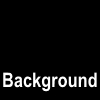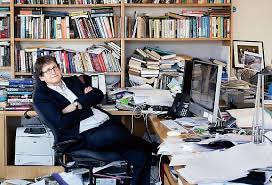 By Pepper Parr
By Pepper Parr
December 16th, 2018
BURLINGTON, ON
Simon Houpt, a Globe and Mail columnist, interviewed Alan Rusbridger, former editor of the Guardian, a British newspaper that has a very strong on-line presence. Their reporting on news world wide is superb; their coverage of the American President is frequently better than the major American dailies – including the New York Times.
The Gazette is certainly not in the same league as the Guardian but we do aspire to, on a local level, do what they do internationally.
Edward Snowden, WikiLeaks, the News of the World phone hacking scandal: Readers around the world know these as some of the greatest hits published by the Guardian during Alan Rusbridger’s 20 years as editor. But he also oversaw – in the teeth of calamitous economic disruption and hundreds of millions of pounds in losses – the paper’s galloping expansion into a news operation serving millions of readers around the globe. He was in Toronto recently for a discussion sponsored by the Canadian Journalism Foundation, reflecting on his career and his new book Breaking News: The Remaking of Journalism and Why It Matters Now.
What follows is a Q&A the Globe and Mail published over the weekend. It is worth a read to understand where journalism is.

Simon Houpt
Simon Houpt (SH) You stepped down in 2015. How does it feel to no longer be in the thick of things?
Alan Rusbridger (AR) It took about 18 months for the adrenalin in the system [to subside]. It’s only when you stop that you realize, it’s not normal to have a knot in the stomach, waking up at 3 in the morning, thinking, “Did I get that fact right, did I double-check that?” That business of getting out of bed every morning and working till midnight, and feeling responsible for stuff we publish around the globe, around the clock – I’m quite relieved not to be doing that. Fun though it was at the time. Twenty years is a long time.
SH Before we proceed any further, I should ask: The Guardian, of course, remains free for online readers. Do you think we should charge for this article?

Alan Rusbridger
AR Well, I don’t feel it’s for me to lecture anybody else on their business model. If the only way of making stuff pay is to hide it behind a paywall, then you have to do it. But there are downsides to that: You get a highly informed elite who are able to pay for news, and you are taking yourself off the playing field where, to a degree never before in history, information is circulating. I should preface all of this by saying we’re five minutes into a gigantic revolution and almost everything we say today will look silly in 10 years’ time.
SH Your position seems to be that we should think of journalism in the same way as many European countries – and Canada, too – regard the arts, such as TV, film and music. These activities are often subsidized because there’s an understanding that the market can’t pay the full costs, yet they’re part of the lifeblood of a culture, something that a nation needs for self-determination.
AR Yes. I completely believe that. My worry is that the classical link between journalism’s ability to make people well-informed and how that created a better society – because well-informed citizens vote for better people – is fading quite quickly. So there’s an awful lot of education and rebuilding to do to get people to realize that we can do that. The good news is, I think people are waking up to that. The bad news is, there’s such terrible levels of trust in journalists and most journalists don’t seem very interested in that.
SH You believe there’s an arrogance there.
AR Almost worse than that. “We’re journalists. Nobody loves us, we don’t care.”
SH One of your prescriptions is what you call “open journalism,” in which a community helps shape reporting through intense feedback. Given some of the developments we’ve seen over the past few years – including the growth of bad actors spreading misinformation and capitalizing on naive openness – do you believe you were too utopian in your embrace of openness?
AR I think it’s too early to say that that is a utopian dream. I know journalists generally don’t agree with this, but I think the experiments I see, in which journalists ask those willing to talk to them, can produce much better journalism.
SH That can require bravery and humility, to really open up the reporting process and acknowledge that we journalists may not know as much as we should. How much of a challenge is that cultural shift?
AR It’s a huge shift. But journalists got Brexit wrong, they got Trump wrong, they got the last [British] general election wrong – they’re sort of blundering around in a world that they can’t really understand at the moment.
SH At the same time, the economic model is collapsing. Here in Canada, the federal government just proposed a series of funding initiatives, including one to provide tax credits to organizations whose eligibility – and this was especially concerning for some critics – would be determined by an industry panel. If you had, say, $100-million a year, how would you determine the recipients?
AR I think the way I would do it is to go out [and ask], What is it that people feel they need to know about their community? Do we want somebody covering courts? Do we want somebody covering police? Do we want somebody scrutinizing planning and education? Do we want somebody sitting in council chambers?
SH Do you believe people know what they want? Clickbait might suggest otherwise.
AR Yeah, they do. It may be that it rarely occurs to anybody to ask them. Maybe there’s an enterprising court reporting service that would have 10 reporters in city courts, and you could price that, and then we could say to them: “But you have to make all that reporting available for The Globe and Mail.”

Simon Houpt
SH You write ambivalently about the BBC: both as a “lighthouse,” as a public good, but also resentfully because of its size. How do you feel it should be regarded?
AR Overwhelmingly, treasured. When I look at America, I would shudder at the thought of Fox News coming in and replacing the BBC, which is I’m sure what the Murdoch company would like.
SH Are you concerned about the BBC’s economic effect on the industry landscape?
AR There’s no meaningful public broadcasting in America, but their media are in just as much trouble. So it’s a terribly easy argument to say, they’re spoiling our business. I think the business problem is bigger than the BBC or bigger than Facebook or bigger than Google. But I do think you need to watch them. I mean, the BBC at one point was sort of moving into glossy magazine publication. So I think it’s right to jump on them if they’re exceeding their brief.
SH Some publishers in Canada attack CBC for being on the internet.
AR Yeah. I don’t agree with that.
SH You began at the Guardian in 1979 and have had a front-row seat to extraordinary change. What do you think is more of a threat: the disruption to the industry’s economic models or the increasing tribalism of our culture?

Alan Rusbridger
AR I think it’s all of a piece, really. There’s a terrible flight from complexity. So we all want simple messages, we worked out that fear sells, emotion works. A little bit of that is fine. But if that becomes the sort of operating system of your news organization, then you will create politicians who do that. If you’re rewarding them and their kind of politics, [that leads to] the kind of populist leaders that we’ve got now.




















Good piece.
Very interesting. Thank you Pepper.